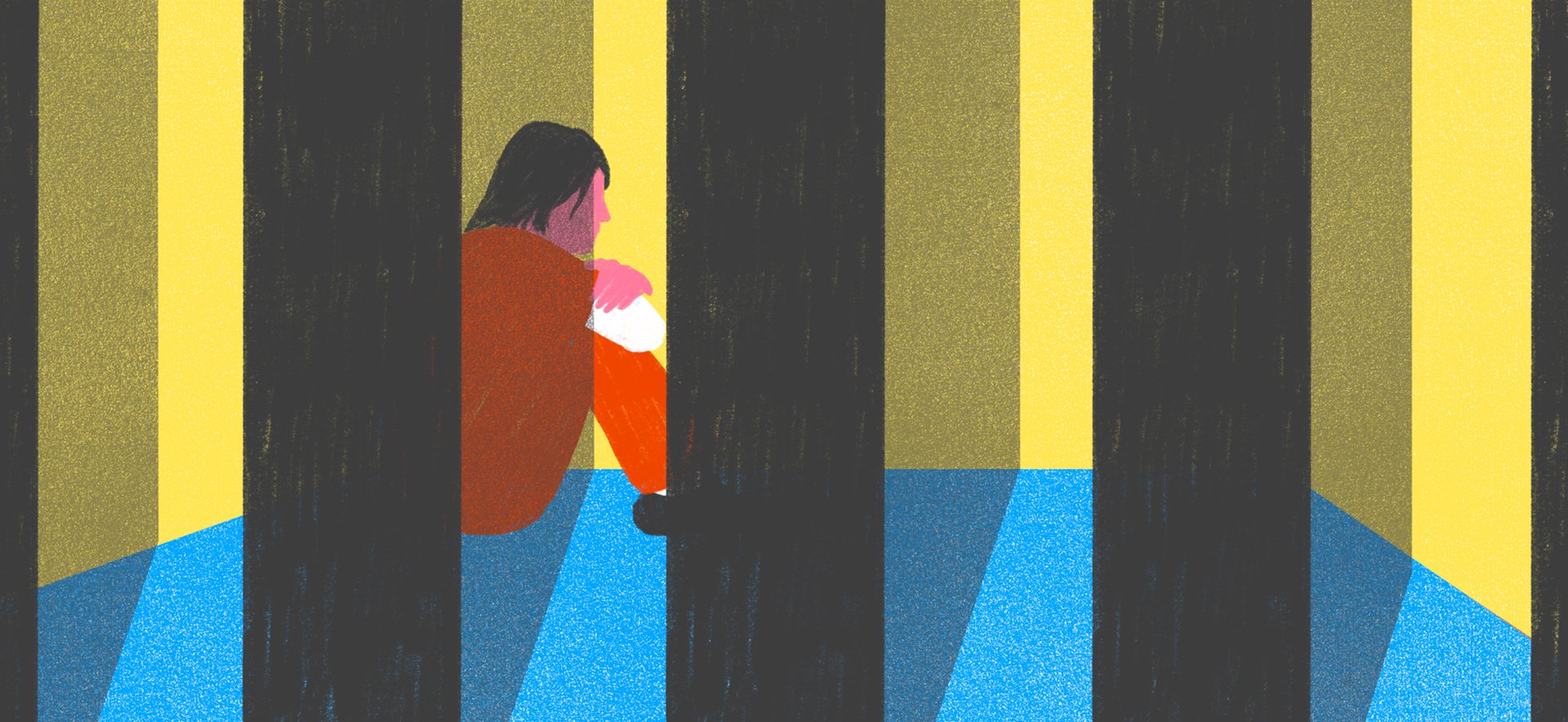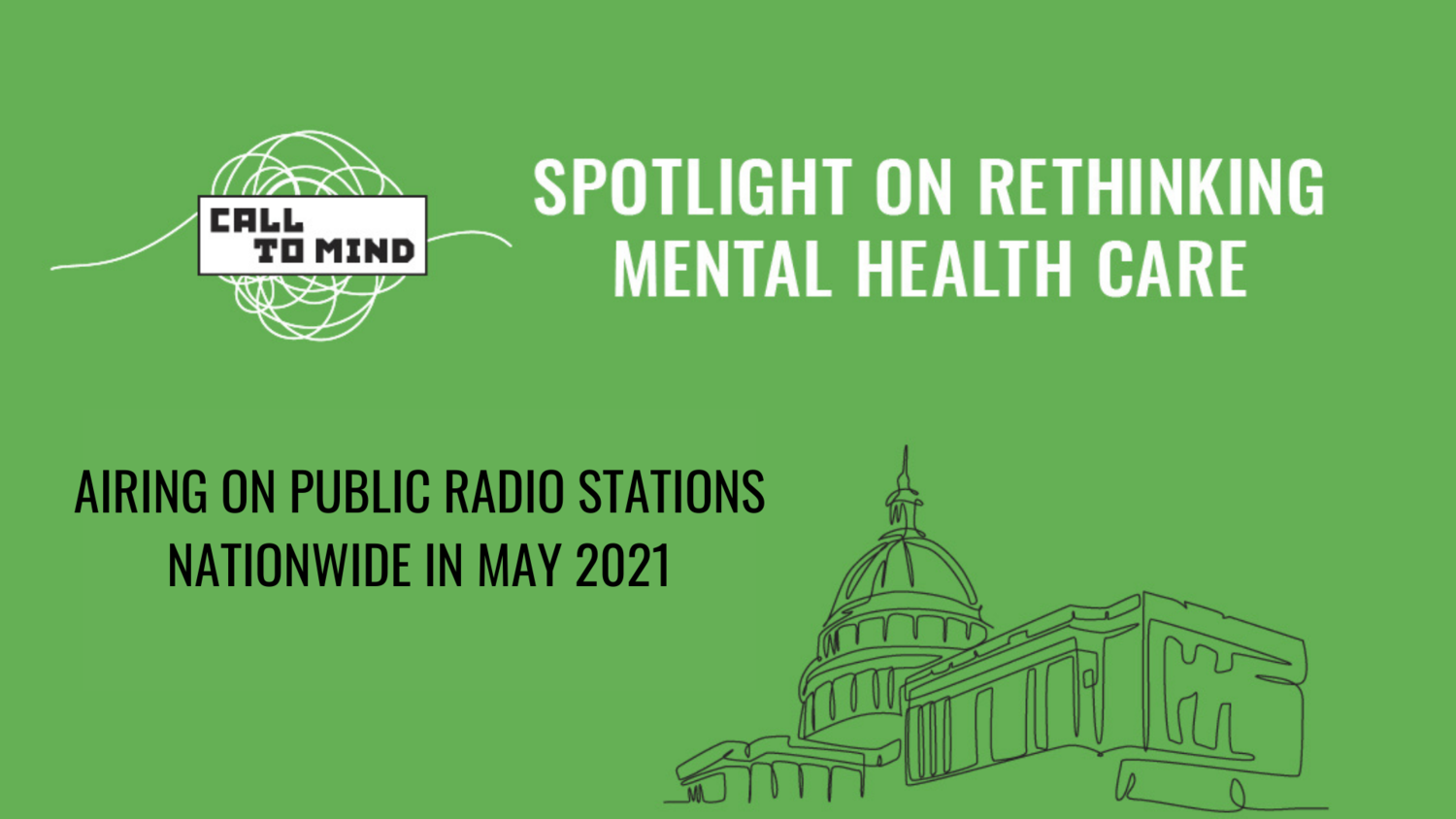Broadcast Specials
Call to Mind’s broadcast specials explore an emerging area of understanding in mental health and share new knowledge to empower people to engage in their well-being. All Call to Mind programs are produced with a focus on identity representation and are available to public radio stations nationwide.
If you are a public radio station interested in airing this program, please contact your American Public Media station relations representative.
Beyond the Mirror: The Challenge of Eating Disorders
An estimated 29 million Americans will suffer from an eating disorder in their lifetime. These mental illnesses can be profoundly disruptive to a person’s life and psychological wellbeing. And eating disorders can be deadly.
The Aging Mind
Studies show that one in four older adults live with a mental illness, such as depression, anxiety, and substance use disorders. But many older people don’t get the help they need. And America’s aging population is expected to double by 2050.
Promise & Peril: Technology and Mental Health
Technology is ever-present in modern life, from remote work to communities on social media, from dating apps to telemedicine. We live with an ever-expanding array of online options and an ever-growing list of new questions about how healthy it is to spend so much time online with our devices.
Treating the Young Mind
The phrase “if only” is often used concerning a person’s mental health. If only we'd known they were hurting. If only they’d been diagnosed sooner. Roughly one in seven children ages of 3 through 17 has a diagnosed mental or behavioral health condition.
Silent Battles: Mental Health & Military Service
Mental illness is the leading cause of hospitalization for America’s military service members. Anxiety conditions and post-traumatic stress disorders lead the list of diagnoses.
BIRTH & DEPRESSION: THE UNSPOKEN CONVERSATION
Depression, anxiety and other mental health issues are the most common complications during and after pregnancy, yet 75 percent of postpartum problems go untreated. The consequences can be devastating. Suicide and overdoses are leading causes of maternal death in the United States.
SCHIZOPHRENIA: FINDING HOPE ON A HARD ROAD
Schizophrenia affects about 24 million people worldwide. It can be a disruptive illness, making it difficult to find a meaningful job, attend school or manage relationships. People with schizophrenia require lifelong treatment, but there is hope. A growing body of research shows that with new interventions it’s possible to live well with the illness.
INCARCERATED WITH MENTAL ILLNESS
Nearly half of incarcerated Americans have a history of mental illness – that's twice the prevalence of mental illness in the adult population of the United States. People with serious mental illnesses encounter law enforcement and the court system for many reasons.
THE BURDEN OF BEING
Black women and girls experience discrimination, microaggressions and stereotypes every day. Living with daily racism has a profound impact on the mental health, well-being and lives of all those coping with it.
THE HOMELESSNESS CRISIS & MENTAL HEALTH
Homelessness in the United States reached a record high in 2023. On any given night, more than 650,000 people experience homelessness. People living homeless have higher rates of untreated mental illnesses and substance use disorders than the general population. That can make it difficult to find a permanent place to live.
Queer Youth Resilience & Mental Health
Considering LGBTQ+ youth face continued fights around their identity, what are mental health concerns specific to queer youth? And what support is necessary for LGBTQ+ teens and young adults to best take care of their well-being amid a national political climate that’s working against them?
SEEKING CONNECTION
For people of all ages, social connections are critical to health and wellbeing. Experts say we are inherently social creatures — hardwired to engage and depend on others for support throughout a lifecycle. Doctors and health researchers have signaled concerns about loneliness for decades — forced isolation during the COVID-19 pandemic introduced many more people to daily struggles with loneliness.
SUBSTANCE USE & NEW PATHS TO RECOVERY
Addiction is at an all-time high in the United States and the results are deadly. During the COVID-19 pandemic, binge drinking increased by 21 percent and drug overdoses claimed over 100,000 lives in just a 12-month period.
Searching for Providers of Color
The mental health treatment field is disproportionately white. What barriers do people of color face while trying to find care? And how important is it to find a provider that can identify with a person’s race, culture and experiences?
988: A Call for Crisis Care
988 is a resource that anyone can call, text or chat for mental health support. Crisis counselors are trained to address a range of mental health emergencies like depression and anxiety, to suicide ideation and substance use disorders. What actually happens when someone dials 988? How is the Lifeline serving as a tool to improve mental health emergency response? And is there a path between mental health emergencies and recovery?
Spotlight on Youth Mental Health During Covid
It’s been over two years since the COVID-19 pandemic threw children and young adults into “survival mode” and forced them to navigate remote school, major disruptions, and face the reality of missed opportunities. As a result, the U.S. Surgeon General Dr. Vivek Murthy and leading medical groups, like the American Academy of Pediatrics, have declared youth mental health a national emergency, pointing to ongoing isolation, uncertainty, and grief as triggers.
Spotlight on the Confusion of Covering Mental Health Care
The Department of Labor released a new report in January showing that insurers and health plans are failing to show how they cover mental health like other physical care treatments. The Mental Health Parity and Addiction Equity Act has been law since 2008, yet health plans are unable to clearly show how they provide equitable appointments and payments to people seeking care.
Spotlight on Virtual Mental Health Care
The COVID-19 pandemic forced many human interactions into virtual spaces, including mental health care and therapy. Providers, care plans, and policymakers rushed to expand virtual access to therapy and other wellness treatments.
SPOTLIGHT ON RETHINKING MENTAL HEALTH CARE
The nation’s mental health crisis is worsening with the COVID-19 pandemic. About two in five adults reported struggling with their mental health, including substance use, in the last year. That’s twice the number of Americans who typically experience a mental illness in any given year. It’s time to rethink mental health care.



















